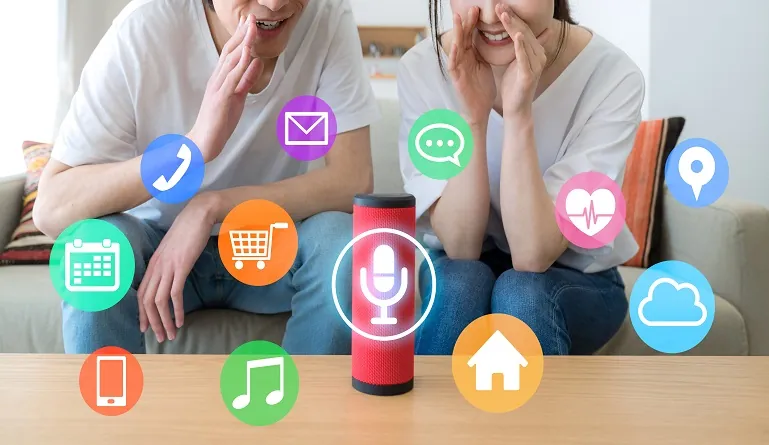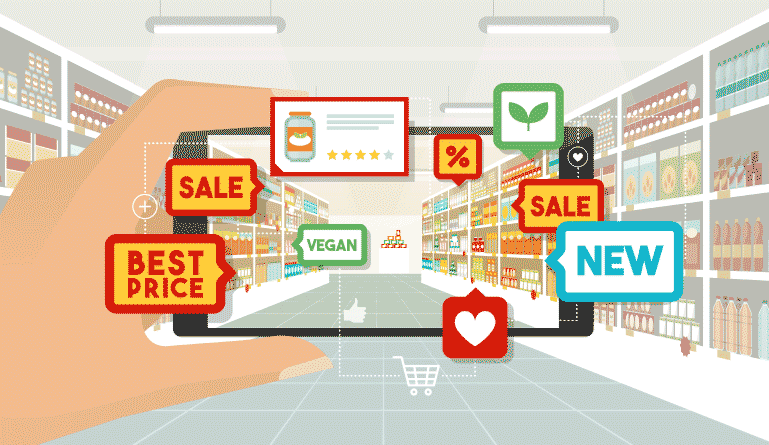Despite a growing focus on chatbots and conversational commerce strategies, research shows that there’s still a wealth of untapped potential. Gartner found that only 8% of customers had a recent service experience, and of those, just 25% said they’d use one again.
So, where are marketers going wrong? How can you build and monetize chatbots that genuinely address customer pain points and generate returns from your investment? To achieve this, marketing leaders need a robust chatbot monetization strategy.
Understanding the Basics of Chatbot Monetization
Chatbot monetization refers to using conversational interfaces – i.e., AI-enabled bots that can communicate with customers via chat messages – to make money directly or indirectly. Direct ways to monetize chatbots include using bots to sell products, display affiliate ads, and make bookings. Indirect chatbot monetization ideas include data collection to target customers better and faster target resolution to increase customer lifetime value.
Marketers today are keen to monetize chatbots because of leapfrog advancements in artificial intelligence and conversational technologies. Natural language processing (NLP), an AI subset, allows software bots to make sense of human languages such as English. It enables chatbots to understand different sentence constructions, semantic combinations, and even idiomatic phrases.
Sentiment analysis is another AI tool that’s contributed to chatbot monetization possibilities. It allows bots to pick up words and phrases in human conversations to assign them an emotional score (positive, negative, or neutral) or identify topics for discussion.
More recently, generative AI has fueled a new generation of chatbots almost indistinguishable from human beings. They are trained on massive databases of text, audio, and video content to make cognitive associations like a human marketer or customer service agent – that’s why they are also known as large language models (LLMs).
As a result, chatbots no longer need to be limited to a simple widget in the corner of your website, which customers may or may not click. There are ample opportunities to monetize chatbots by tapping into these powerful technologies and meeting customers who need conversational experiences the most.
5 Strategies to Monetize Chatbots
Once you have decided on the appropriate technology stack, incorporating the cutting-edge tools we discussed, you can look forward to monetizing chatbots by:
-
Generating and converting leads within chat interfaces
One of the most sustainable ways to monetize chatbots is to use it as a lead management channel. With customers today spending so much time online, there are plenty of ways to connect with them across digital chat interfaces. Chatbots integrate seamlessly with social media platforms and messaging apps, meaning that leads don’t have to visit the company’s website or branded applications. This reduces customer effort while driving engagement.
Once the chatbot captures customer attention (through social media forms, ads, or organic content), you can leverage its capabilities to qualify the lead and position them on the funnel accordingly. Based on the bot’s data, it can automatically route them to a sign-up or purchase page or nurture them further with targeted collaterals.
Chatbots can also act as a bridge between physical and digital worlds. Marketers can connect QR codes printed on kiosks, store walls, and other physical locations with a chat app that conveniently converts the lead before they lose interest.
-
Recommending sponsored and affiliate links via chat
Another popular chatbot monetization idea is to share sponsored content, links, and recommendations via chat. Marketers can collaborate with organizations in the same space to identify cross-pollination opportunities to engage customers.
For example, a VoIP service provider could partner with a desk phone manufacturer. When someone visits the VoIP provider’s service catalog, a chatbot can recommend the best phone and accessories they can buy. If the lead clicks on the link and buys a product from the manufacturer, the VoIP provider who owns the chatbot earns a certain amount.
-
Advertising promos and discounts based on chat data
Chatbots can act as an additional channel for your promotions and discount campaigns. Chat interfaces are particularly effective for this purpose as they allow marketers to customize each customer segment’s discount type and category.
For example, someone contacting your company to register a complaint via chat can be offered a redeemable coupon for future services.
On the other hand, if a lead has visited your website several times without buying, then a 15% discount can help convince them to make the purchase decision. This is an excellent way to monetize chatbots because customers will likely check their messages frequently. This creates a sense of time-bound urgency, which leads to greater monetization opportunities.
-
Conducting surveys and polls via chatbots
Chatbots can help you collect customer data for various purposes, from user research to surveys and polls. An essential benefit of monetizing chatbots in this manner is that it makes it easy to collect, record, and exhibit consent. As part of the natural course of conversation, customers can specify which type of data they agree to share, and the data uses they approve.
Marketing teams can leverage this data to enrich their existing customer data repositories. It can fill out the gaps in your customer data platform (CDP) – updating information that’s now obsolete or filling in missing fields. This powers better customer analysis and segmentation so you can target your email, chat, and ad campaigns.
Survey data from chatbots can also be collected in research reports and e-books. Again, the conversation flow will help you adhere to a scientific research methodology to reach the proper customer sample. Once the report is complete, you can monetize it as gated, high-value content.
-
Offering premium chatbot services
Finally, positioning it as a premium service is one of the most direct ways to monetize chatbots. For example, enterprise users of your offering could enjoy access to advanced, AI-enabled chat support; the price of chatbot services would be baked into their enterprise account subscription. Chatbots can also provide services like making/canceling appointments and fulfilling service requests. To monetize chatbots, organizations can consider the cost savings by reducing manual effort or charging customers a fee for these services.
In Conclusion: Best Practices to Monetize Chatbots Effectively
When deployed intelligently, chatbots come with incredible monetization potential. However, marketing leaders often need to pay more attention to these benefits because they overlook best practices.
The first fundamental principle to remember is personalization – chatbots must be considered part of an overall lifecycle messaging strategy, tailoring the content and channel to the customer’s unique position on the purchase journey.
A gamification philosophy can also prove helpful, encouraging customers to move through different levels of interactions – forming a cohesive narrative across chat apps/channels. Data from chat must inform other communications, and vice versa, to design a revenue-generating CX holistically. Through all this, the focus on privacy and security must be paramount. Organizations can subscribe to reputed AI and chatbot providers to ensure secure cloud hosting, consent recording, and data protection.





